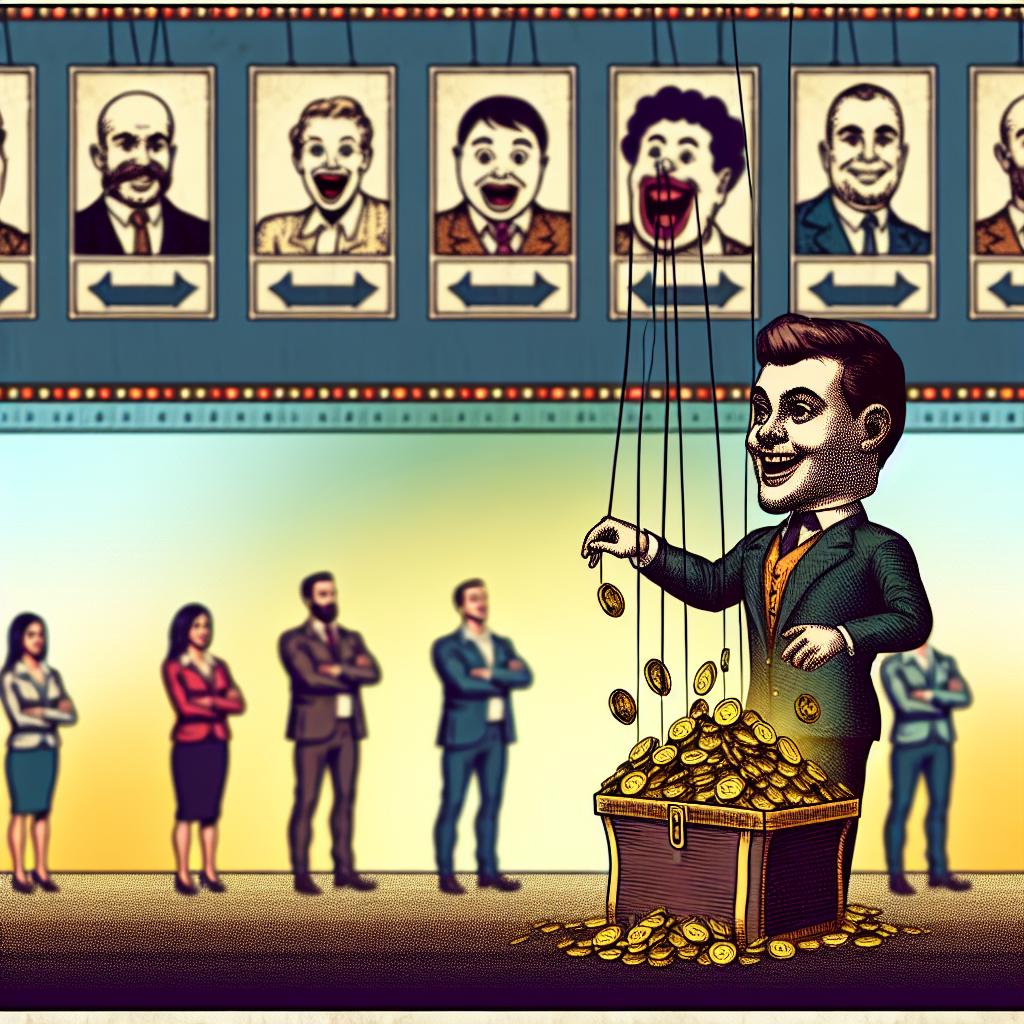How Fake Testimonials and Success Stories Mislead Traders
The Prevalence of Fake Testimonials and Success Stories
In the digital age, the world of online trading has witnessed a significant rise in the use of testimonials and success stories to market various platforms, services, and strategies. Initially, these accounts serve a seemingly helpful purpose, offering prospective users insights into a product’s efficacy. However, the growing presence of fake testimonials and fabricated success stories raises concerns about their impact, particularly on novice traders entering the market.
Understanding Fake Testimonials
Fake testimonials are typically crafted by individuals or organizations to present a skewed, often exaggerated version of reality. These narratives are commonly fabricated by hiring actors or using fictional personas to promote a trading platform or strategy falsely. The overarching aim of these deceptive practices is to create a favorable impression of the service or product, thus attracting a larger user base.
The Role of Social Proof
At the heart of this phenomenon lies the concept of social proof. This psychological principle posits that individuals tend to mirror the actions of others, assuming that such behavior is correct. In the realm of trading, observing others’ success using a specific method can be highly motivational. However, the deployment of fake testimonials manipulates social proof to exploit this intrinsic human tendency. Consequently, this can lead traders into making decisions based on inaccurately represented success, making them vulnerable to uninformed choices.
The Impact on Traders
Many traders, especially those new to the field, depend heavily on others’ experiences when selecting trading platforms or tools. Fake testimonials, therefore, pose several risks:
Misplaced Trust: By constructing fraudulent accounts of success, traders might place unwarranted confidence in a platform or strategy, potentially leading to financial loss. Trust, once misplaced, can have lasting negative repercussions for traders navigating the complexities of the market.
Skewed Risk Perception: Success stories often have a tendency to downplay inherent risks, skewing the trader’s perception. Consequently, this leads traders to underestimate the potential challenges and pitfalls associated with certain strategies, making them vulnerable to unexpected outcomes.
Unrealistic Expectations: Exaggerated or false narratives about trading successes cultivate unrealistic expectations regarding profitability and success. When traders do not meet these inflated expectations, it can lead to disappointment and significant monetary losses, causing a cascading effect on their market participation and motivation.
Spotting Fake Testimonials
Identifying fake testimonials, while challenging, is essential to maintaining informed trading decisions. Here are some indicators:
Lack of Specificity: Genuine testimonials typically contain specific details about an individual’s trading journey. When faced with vague statements that provide no concrete information, traders should remain cautious, as these are often indicative of fabricated accounts.
Overly Positive: Testimonials that excessively praise without any mention of drawbacks or challenges should be approached with skepticism. A balanced narrative is more likely to be authentic.
Repetition: Identical phrases or stories recurring verbatim in multiple testimonials might suggest they have been fabricated or sourced from templates, rather than real experiences.
The Legal and Ethical Perspectives
While the prevalence of fake testimonials is not unique to the trading industry, it raises legal and ethical questions. Many jurisdictions regulate advertising practices strongly, emphasizing truthfulness and requiring companies to substantiate claims made through customer testimonials. Failure to adhere to these standards can result in legal repercussions for the platforms involved.
From an ethical standpoint, creating fake testimonials not only misleads consumers but also undermines the trust that is fundamental to the client-service provider relationship. Consequently, ethical trading platforms are encouraged to foster transparency and authenticity in their marketing practices, creating a foundation of trust and honesty that can ultimately benefit both traders and providers.
The Role of Regulatory Bodies
To combat the proliferation of false testimonials, regulatory bodies play a critical role in enforcing stringent guidelines. These guidelines are designed to ensure that traders have access to accurate information for making informed decisions. Regulatory authorities actively monitor trading platforms, and instances of misleading testimonials or deceptive marketing practices are subject to penalties, fines, and sanctions.
Moreover, increased cooperation and information sharing among international regulatory bodies can enhance oversight and ensure that unethical practices are effectively tackled on a global scale.
Measures for Traders to Mitigate Risks
Traders themselves hold the power to mitigate risks associated with fake testimonials. Employing critical thinking, cross-verifying information from multiple sources, and engaging with reviews from credible platforms or forums can help in constructing a well-rounded and evidence-based perspective on a trading tool or strategy.
Using demo accounts or trial periods offered by platforms can provide first-hand experience, offering a non-biased assessment of the service’s viability and performance.
Lastly, seeking advice from experienced traders, mentors, or financial consultants can serve as a resourceful strategy, enriching a trader’s understanding, and guiding them away from deception.
The Future Outlook
As technology evolves, so do the methods to propagate fake testimonials, necessitating advanced solutions to detect and counteract them. Artificial intelligence and machine learning technologies can aid in identifying patterns that suggest fabrication, enhancing the detection capabilities of regulatory frameworks.
Simultaneously, raising awareness about this issue through educational campaigns, seminars, and workshops can empower traders, equip them with the tools to critically assess testimonials, and better navigate the intricate landscape of online trading.
Conclusion
In conclusion, recognizing the prevalence of fake testimonials and understanding their potential impact allows traders to safeguard themselves effectively. By practicing diligence and employing critical thinking, traders can minimize their exposure to misleading information, ensuring decisions are informed and grounded in legitimate, reliable sources. Through collective efforts from traders, service providers, and regulatory bodies, the trading industry can aspire to foster an environment of transparency, trust, and authenticity.
This article was last updated on: July 14, 2025

